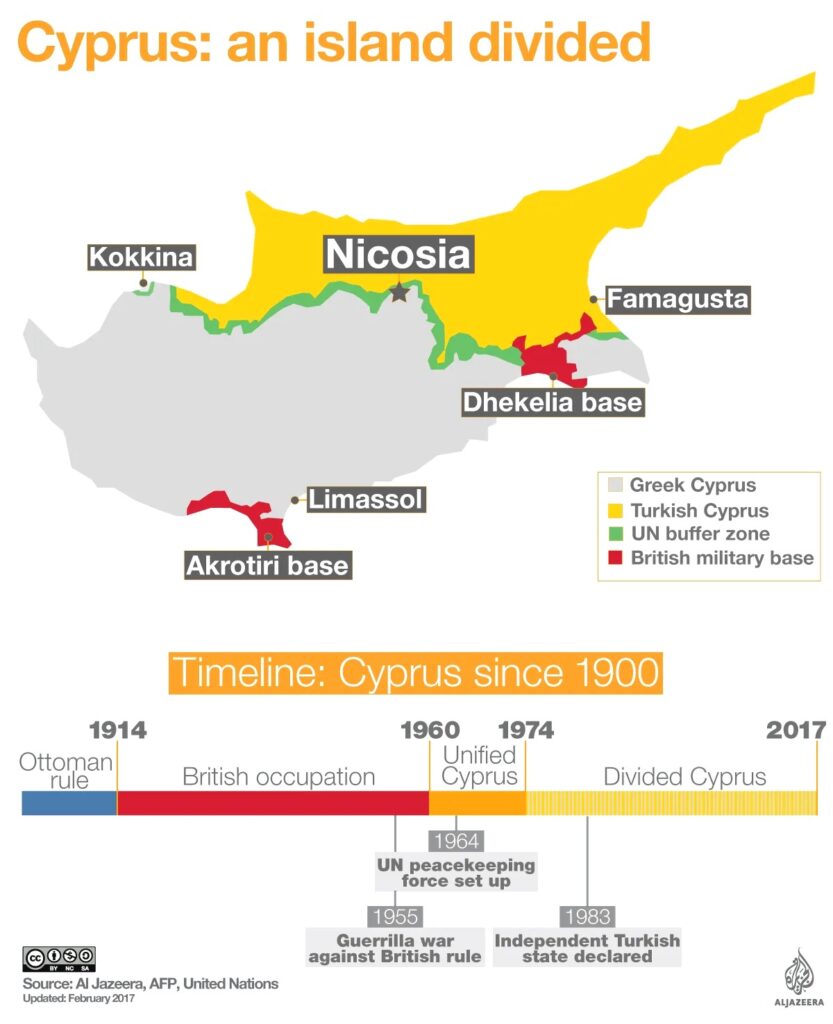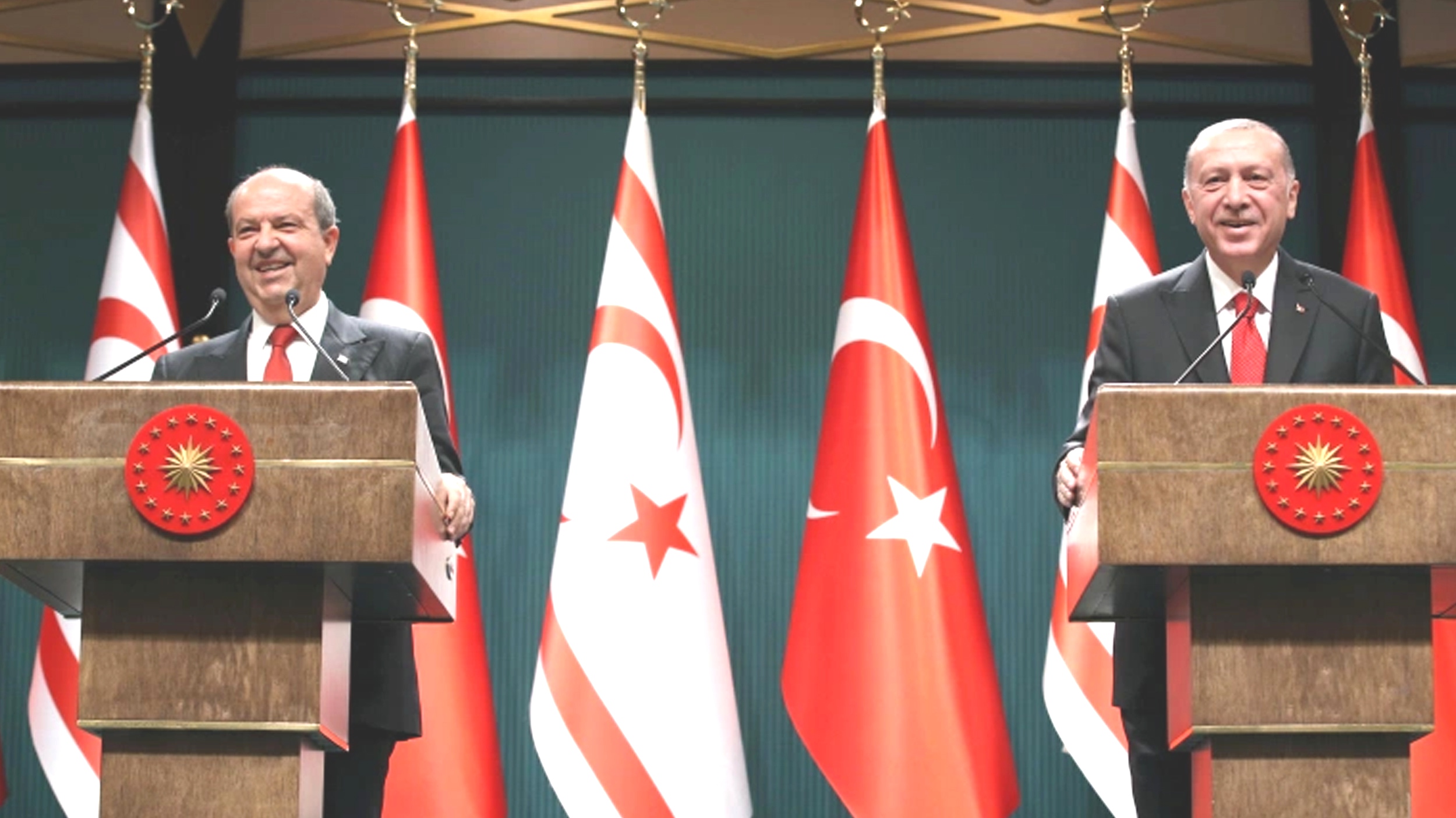The Cyprus conflict, often referred to as the “Cyprus problem,” is a longstanding political dispute that has had a profound impact on the Eastern Mediterranean region for over half a century. At the heart of this conflict lies a complex web of historical, ethnic, and geopolitical factors. In this comprehensive blog post, we will delve into the intricacies of the Turkey Cyprus conflict, shedding light on its origins, historical developments, key players, and the ongoing efforts to find a peaceful resolution.
Understanding the Cyprus Conflict
Historical Background
The history of Cyprus is marked by a rich tapestry of civilizations, including Greek, Roman, Byzantine, and Ottoman influences. In 1960, the island achieved independence from British colonial rule. However, the path to independence and the subsequent years were fraught with challenges, setting the stage for the decades-long conflict that would follow.
Ethnic and Religious Composition
Cyprus is characterized by a diverse population. The majority of the island’s inhabitants are Greek Cypriots, who adhere to the Orthodox Christian faith. On the other hand, there is a significant Turkish Cypriot minority, predominantly composed of Muslims. This ethnic and religious diversity has been a defining factor in the conflict.

The 1974 Turkish Invasion
The Cyprus conflict reached a turning point in 1974 when a coup orchestrated by Greek Cypriot nationalists, with the support of the military junta in Greece, aimed to achieve “Enosis,” or union with Greece. In response, Turkey launched a military intervention in Cyprus, citing the need to protect the rights of Turkish Cypriots. This intervention resulted in the effective division of the island into two parts: the Republic of Cyprus in the south, controlled by Greek Cypriots, and the self-declared Turkish Republic of Northern Cyprus in the north, recognized solely by Turkey.
United Nations Peacekeeping
In the wake of the 1974 Turkish invasion, the United Nations took a pivotal role in attempting to mitigate the conflict. The United Nations Peacekeeping Force in Cyprus (UNFICYP) was established to maintain a buffer zone between the two sides, providing humanitarian aid and facilitating negotiations.
The Ongoing Division
Fast forward to the present day, and Cyprus remains divided. Numerous reconciliation and reunification efforts have been undertaken over the years, but a comprehensive solution has remained elusive. Some of the key stumbling blocks in these negotiations include the presence of Turkish troops on the island and the governance of a potential reunified Cyprus.
International Involvement and Implications
The Cyprus conflict is not just a regional issue; it is a matter of international concern. The Republic of Cyprus is a member of the European Union (EU), and the status of the island significantly impacts EU-Turkey relations. Various international actors, including the United Nations and neighboring countries, have been engaged in diplomatic efforts to resolve the conflict and promote peace in the region.
The Role of Turkey in the Cyprus Conflict
While the term “Turkey Cyprus conflict” is not typically used to describe the issue, Turkey has played a central and influential role throughout the conflict’s history. From the 1974 military intervention to the ongoing support of the Turkish Republic of Northern Cyprus, Turkey’s involvement has been instrumental in shaping the course of events.
Recent Developments and Future Prospects
As of my knowledge cutoff date in January 2022, there have been ongoing efforts to find a resolution to the Cyprus conflict. Talks and negotiations have continued, with the aim of reunifying the island under a comprehensive settlement. However, the path to reconciliation remains challenging, and the international community continues to monitor the situation closely.
Conclusion
The Cyprus conflict, often referred to as the “Turkey Cyprus conflict,” is a multifaceted issue with deep historical roots, ethnic complexities, and significant geopolitical implications. While progress has been made in diplomatic efforts to find a peaceful resolution, the conflict remains unresolved, impacting the lives of both Greek Cypriots and Turkish Cypriots and reverberating throughout the Eastern Mediterranean. As the world continues to evolve, it is essential to stay informed about the Cyprus conflict and the ongoing efforts to bring about a lasting and just solution.
In conclusion, the Cyprus conflict stands as a testament to the enduring challenges of achieving peace and reconciliation in a world marked by complex historical legacies and geopolitical rivalries. It serves as a reminder of the importance of diplomacy, dialogue, and international cooperation in resolving protracted conflicts and fostering stability in troubled regions.
You can also Read Here : Hamas vs Israel War .

